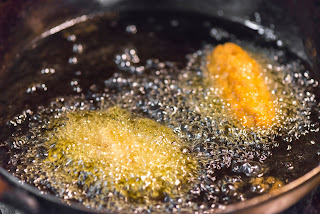Yesterday, I bit off more than I could chew. I tried to write an essay about Martin Luther King, Jr.’s birth anniversary and got weighed down in awkward description. My anger got the better of me in a way that Dr. King would not have accepted. There is too much to respond to and too much need to speak out.
Today, I’ll try to clarify my writing in discussing the
radicalization of attacks on educational freedom. Contrary to the conservative
argument, educational freedom is not achieved by banning teachings or books. How
could outlawing thoughts be any form of freedom? Rather, it is in allowing open
thought and discussion to foster, even when those avenues may not be
comfortable or glorious.
There are a few facts that are glossed over by the proponents
of strict governmental control on teaching. The first is that education is not
a comfortable experience. By definition, it is a step into the unknown and that
may make a student leery. But facing the unknown and learning to accommodate
one’s expanding knowledge is an integral part of growing. I was exceedingly uncomfortable
learning calculus. It made me feel foolish to struggle through many of the mathematical
ideas and to get low grades. But I would never have expected or wanted my parents
to try to ban it from the school curriculum.
Another fact is that Critical Race Theory is NOT being
taught in grade school curricula. It is true that History and Social Studies
are now being taught through a broader framework than the “Glory of Our
National Heritage,” but that should not shame or discomfort anyone who is
interested in learning more than a superficial truth. What IS being taught in a
graduated fashion is the formation of critical thinking skills pertaining to
American and World history – context, nuance, perspective. Parents should welcome
this since it will make their children better prepared for the subtleties of
real life beyond the safe harbors of the schoolroom and home.
Finally, there is no scenario where the umbrage of a single
parent or even a group of them should influence the curriculum for all
children. A parent or even a collective organization must not have control over
what is offered in education to all students. I guarantee that what I want my
child taught is not the same as what you want your child taught. There already
is a mechanism to control the interaction between curriculum and student. It is
called parental involvement. If a child is uncomfortable with a facet of
learning, it is the parent’s place to discuss it with them, not the school’s or
other parents’ responsibility to compensate.






